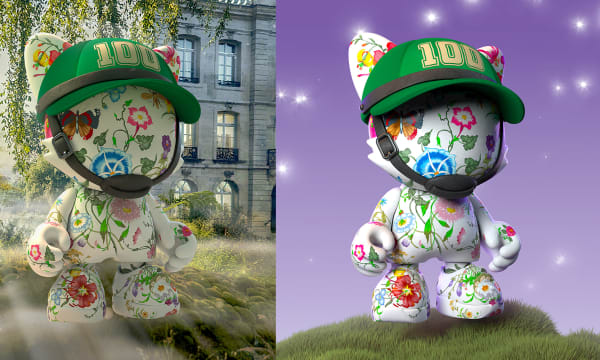The rise of ethical consumption is driving brand activations in the metaverse. In an interview with Wunderman Thompson Intelligence, CEO and founder of digital retail platform The Fabricant Kerry Murphy said that digital possessions, rather than replacing physical goods, are “adding value. They can be a counterpart to physical possessions, but they can also have a life of their own, completely disassociated from physical reality.”
What if that value elevated ethical and sustainable values in retail as well? Brands with ethical practices and standards are bringing their communities into the metaverse, laying the groundwork for mindful retail and fashion in the digital realm.
Depop partnered with The Sims 4, launching a circular fashion collection on the digital gaming platform on July 28th. A virtual thrift store will sell “used” retail as part of The Sims’s “High School Years” expansion pack. The Sims Head of Brand Julia Vector was quoted by HypeBeast stating that the collaboration “allowed us to bring in unique and creative looks that reflect today’s fashion trends and how Gen-Z shops and shares fashion.”
The International Anti-Fur Coalition (IAFC), the University of Westminster’s Fashion Institute, and Hexaware Technologies are collaborating in the metaverse to campaign against the use of animal fur in physical clothing. The UNFUR Project will create digital fur fashion items as NFTs sold as part of a larger campaign to raise awareness of fur trading and promote sustainable alternatives for fur and faux fur clothing. Paul van Raak, Creative Director of Mobiquity, a part of Hexaware, said in a press release that "The UNFUR project intentionally brings tension between buying a digital fur fashion piece (because it is considered beautiful) while you are aware that this should not be bought in the physical world. We use this duality as a trigger to drive the audience to bid on one of the UNFUR NFTs and by doing so support the fight against the fur industry." The proceeds from the NFT sales will combat fur trade.
Other sustainable brands are using the metaverse to promote their causes, launches, and goods as well. Rens, a Finnish sustainable sneaker brand, entered the metaverse in March with limited edition NFTs to mark their climate neutral ‘coffee hoodie’ launch in the physical world. The collection will include a range of ‘Regular,’ ‘Rare,’ and ‘Epic’ designs that can be purchased with several forms of cryptocurrency.
Ethical and sustainable practices are transferring to metaverse fashion in a range of styles. Leslie Holden, cofounder of the Digital Fashion Group, told Wired, “We really believe that a digital approach is a pragmatic answer to the industry’s sustainability issues.”
Rachel Kebbe, founder of Circular Services Group, spoke about the value of ethical retail and goods in the metaverse with WWD: “If you think about [the success of bottle recycling] in terms of the metaverse, the metaverse is built on cryptocurrency, which is just another way of denominating value, so how can I give people value for taking the next rightful action with an item and have that traceable?”
Ethical practices don’t stop at the physical door. As consumers bring their ethical and sustainable standards with them into the virtual realm, brands will need to lead with ethics when entering the metaverse.


